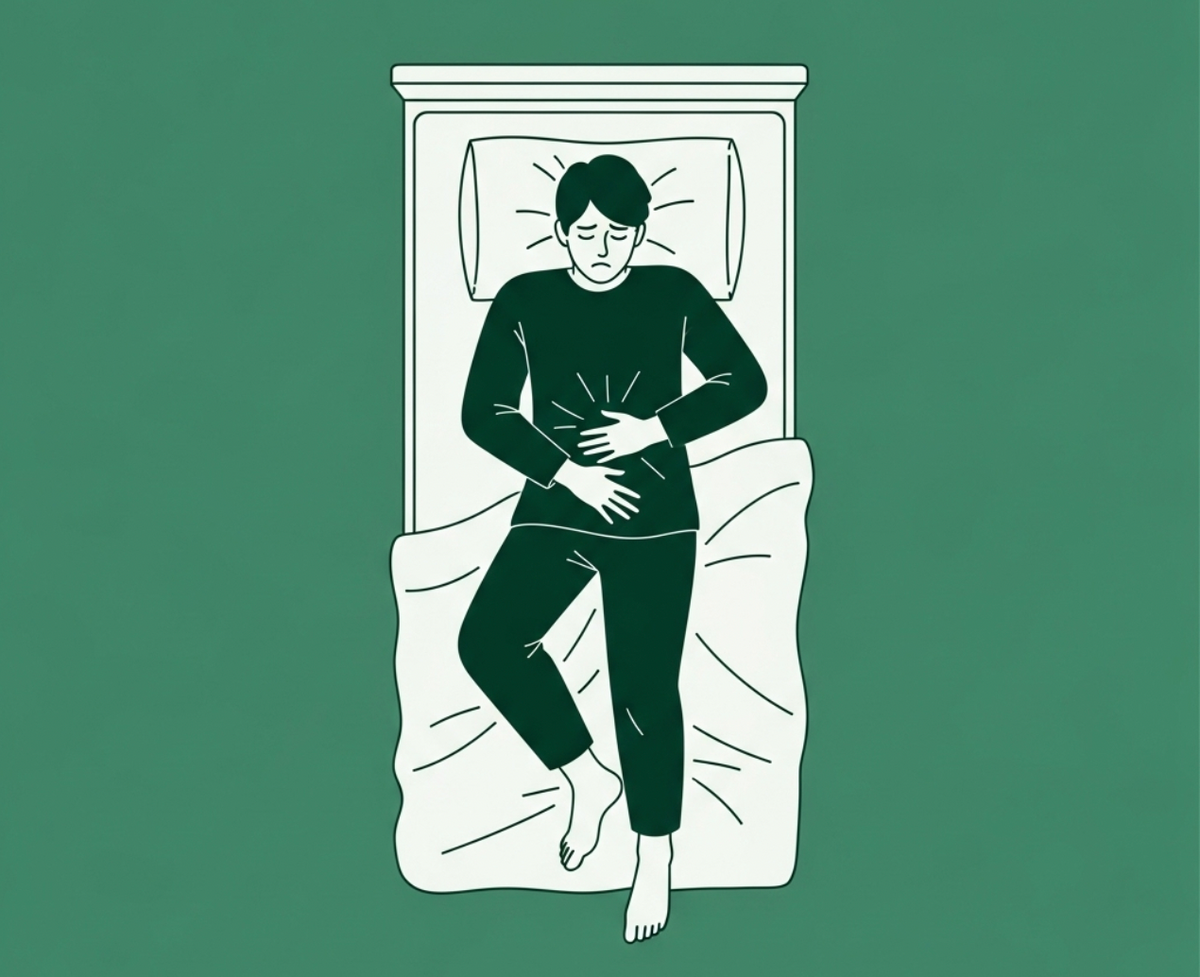
Why Am I Bloated Only at Night: Causes & Solutions
|
|
Time to read 5 min
|
|
Time to read 5 min
Still googling "why do I get so bloated at night"? You're not alone. Millions of people feel fine all day, then suddenly their stomach puffs up like a balloon when evening hits.
The good news? Nighttime bloating is totally fixable once you know what's causing it. This 7-step guide + the Claisen gut quiz will help you identify your unique bloating triggers and give you a personalized plan that actually works for your body.
Your stomach has been working all day processing everything you've eaten. By evening, all that food starts to add up. Plus, your digestion naturally slows down when it gets dark - it's getting ready for sleep mode, think of it like traffic on a highway. During the day, cars (food) keep moving. But at night, everything slows down and creates a backup.
Studies show that 7 out of 10 people with digestive issues get more bloated at night. And about half of them say the bloating keeps them awake.
Understanding why you get bloated at night is the key to fixing it. Here are the main reasons your stomach puffs up when the sun goes down:
Your body has a natural rhythm called your circadian clock. Just like you get sleepy at night, your digestive system also starts to slow down when it gets dark.
Your stomach produces less acid, your intestines move food slower, and everything just works at a more relaxed pace. This means food from your day starts to pile up and ferment, causing bloating.
All the food you ate during the day creates a "traffic jam" in your digestive system by evening.
Most people eat their largest meal at dinner, but here's the problem - that's exactly when your digestion is at its weakest.
You pile a big meal into a digestive system that's winding down for the day. It's like asking someone to run a marathon right before bedtime.
Your stomach struggles to handle all that food, so it sits there and ferments, creating gas and bloating.
Plus, certain foods become "bloating bombs" when eaten at night because your slower digestion can't handle them.
Common nighttime bloating foods:
For many people, stress builds throughout the day and peaks at night. Stress produces cortisol, which slows digestion and changes gut bacteria, leading to more gas and bloating.
Evening hormone changes also affect digestion - cortisol drops, melatonin rises, and for women, monthly cycles can make nighttime bloating much worse.
Read our blog The Ultimate Guide to Stop Bloating!
Stop eating 3 hours before bedtime. If you sleep at 10 PM, finish dinner by 7 PM. Make lunch your biggest meal when digestion is strongest, and keep dinner light and simple.
Switch to easily digestible foods for dinner and avoid bloating triggers.
Best evening choices:
What to skip at night:
Choosing the right foods and eating at the right time but still don't know why you're bloating? Don't worry. No two guts are the same and Claisen's gut quiz decodes your gut for you. Try it for free .
When you sleep on your left side , gravity naturally helps your digestive system do its job. Your stomach sits lower than your esophagus in this position, which allows gas to move through your intestines more easily and reduces pressure on your stomach. This position also prevents acid from flowing back up, which is why it's especially helpful if you deal with acid reflux along with bloating.
Build a simple routine that supports good digestion
| 6:30 PM | Finish dinner |
| 7:00 PM | Take a gentle walk |
| 8:00 PM | Have herbal tea and do some light stretching |
| 9:00 PM |
Wind down with relaxing activities (no work stress) |
| 10:00 PM | Sleep on your left side |
Your digestive system loves predictability. Stick to the same schedule and your stomach will start to expect it.
Nighttime bloating is frustrating, but it’s not something you have to live with. Most cases come down to simple lifestyle factors like meal timing, food choices, and sleep position. By making small, consistent changes like finishing dinner earlier, choosing easier-to-digest foods, and sleeping on your left side you can reduce bloating and sleep more comfortably. Remember, your body needs a bit of time to adjust, so stick with these habits for at least 2-3 weeks.
Eat dinner at least 3 hours before bed to prevent bloating.
Choose simple, low-bloat foods for your evening meal
Sleeping on your left side helps gas move and reduces reflux.
Stress management and consistent evening routines improve digestion.
This article and its contents have been medically reviewed by Aditya Jain (MD at Harvard Medical School and Op-Ed Fellow at Doximity).
Nighttime bloating happens because your digestion slows down in the evening, and food or gas builds up. Large dinners, certain foods, and lying down too soon after eating can make it worse.
Yes. Sleeping on your left side uses gravity to help gas pass through your intestines and can also reduce acid reflux, making it easier to sleep comfortably.
Beans, broccoli, cauliflower, dairy, carbonated drinks, and fried foods are common nighttime bloating triggers. Instead, try simple meals with lean protein, rice, and cooked vegetables.

